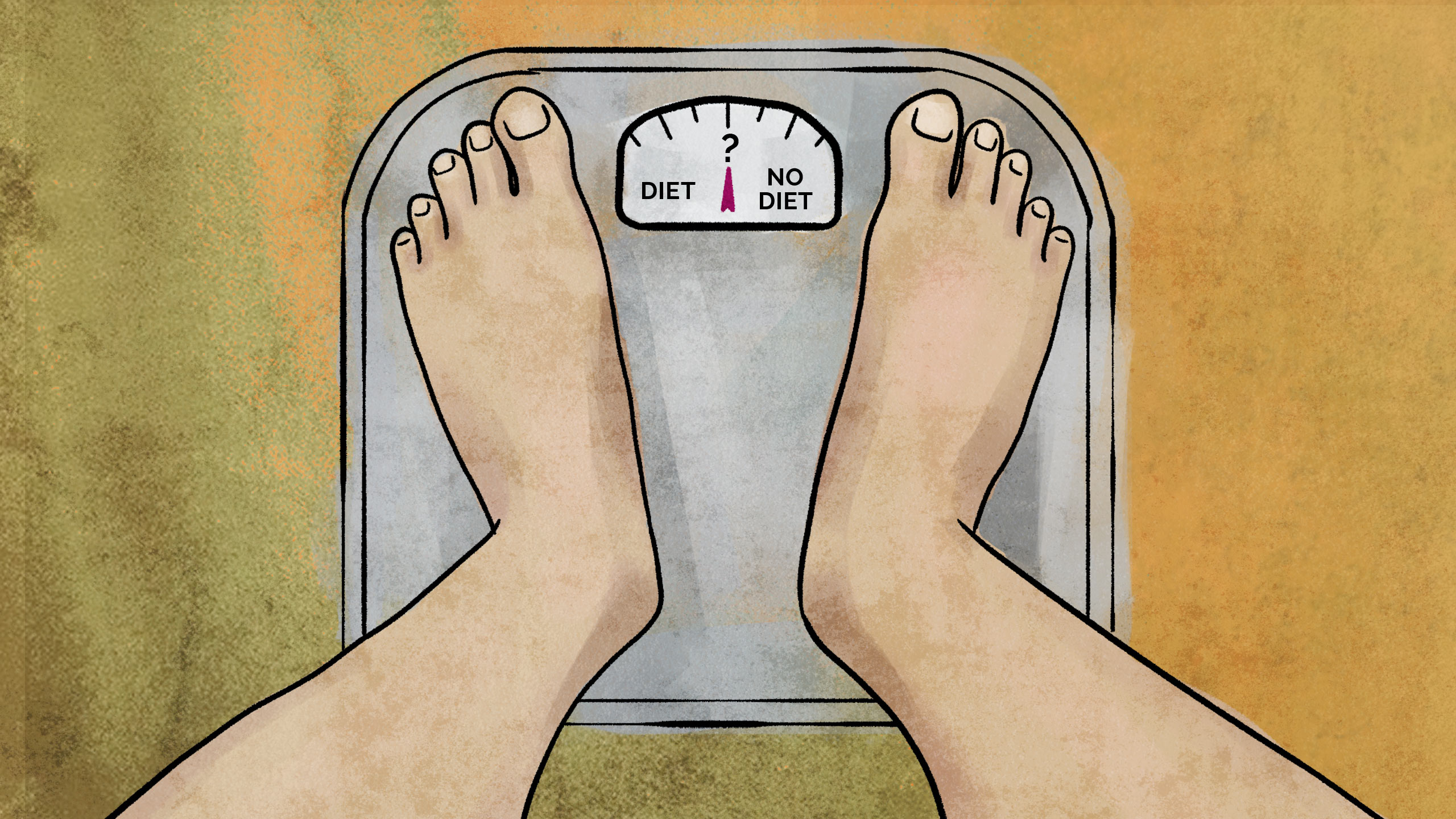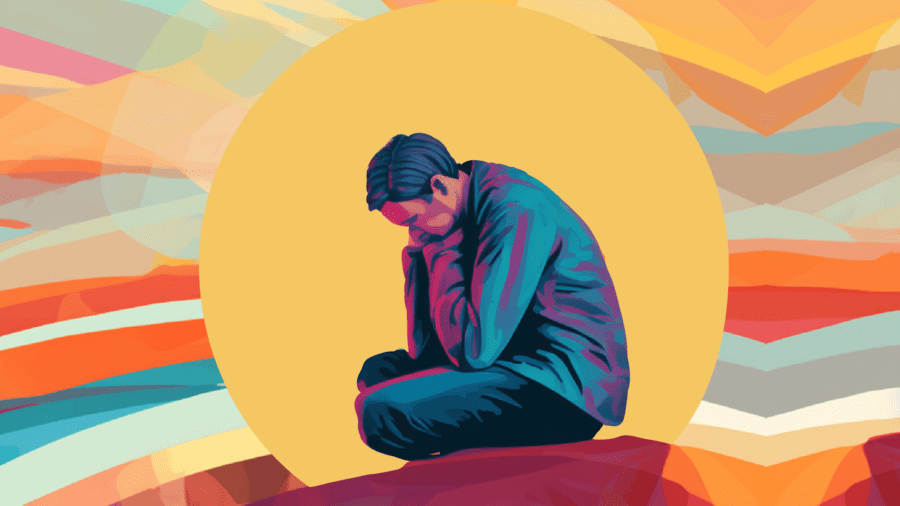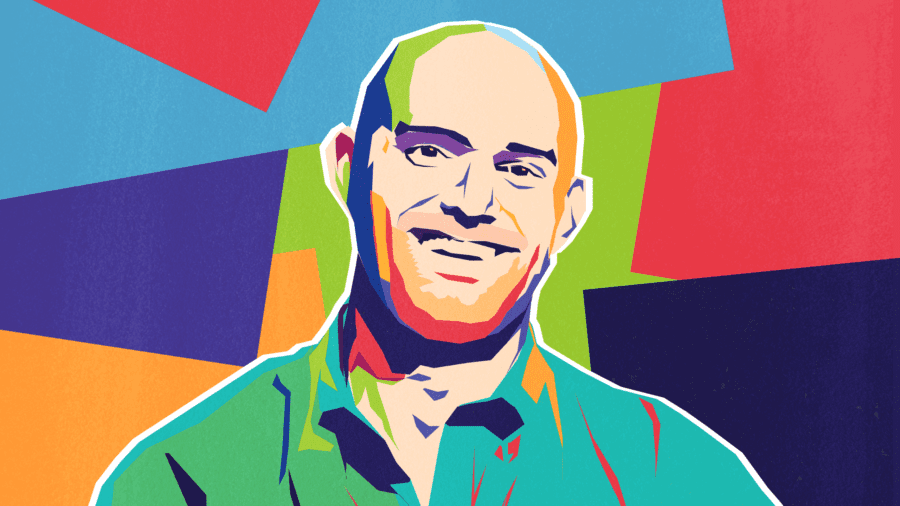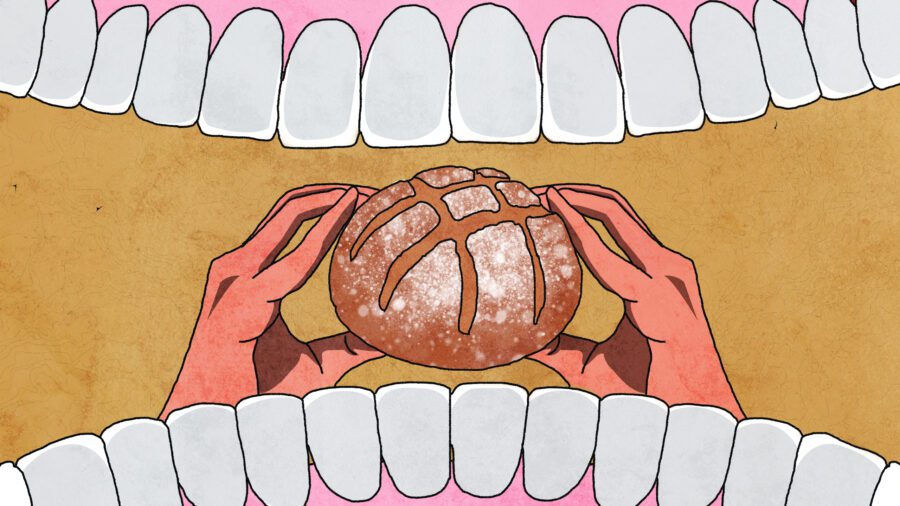
An In-Depth Look at How Diet Culture Affects Men (And How to Cultivate a Healthy Body Image)
The way diet culture affects women has been a big social talking point for the past several decades or so.
The way diet culture affects men? It’s not always on the table for discussion, and most people aren’t aware of how big of a problem it is.
But the sad truth is, rates of body-related dissatisfaction among men are steadily growing: In one study, a quarter of young adult men described having disordered eating behaviors related to body dissatisfaction. Harmful behaviors like exercise addiction and orthorexia nervosa (an obsession with healthy eating) are on the rise and, believe it or not, an estimated 25 to 40 percent of those with eating disorders are men.
When you consider how big a part social media has in everyone’s lives now, it’s not hard to understand how diet culture and body objectification might be impacting men more. Factor in a global pandemic that left people feeling unhappy with weight gain and put a dent in their mental health, and you can see why conditions have given rise to men having unhealthy relationships with their bodies.
If this is you, please don’t judge yourself. Feeling secure in a world where you’re bombarded with messaging 24/7 that’s aimed at making you feel insecure is not easy. You’re doing great.
In this article, you’ll learn about diet culture and eating disorders among men, why diet culture is toxic, and how to free yourself from diet culture and respect your body.
How Diet Culture Manifests in Men
Just like women, men are often unhappy with their bodies and sometimes strive to change themselves at the expense of their health. There are some differences though. Muscle dysmorphia, the belief that one’s body isn’t sufficiently lean and muscular, is the more likely manifestation of diet culture among men. The condition, also known as “bigorexia,” causes a person to feel and perceive themselves as small even when they are big and muscular.
A British study found that around one in ten male gym members have muscle dysmorphia, which can lead to an obsession with bulking up. This may lead to unhealthy levels of weight lifting, exercising, and even taking steroids, plus living with a self-image that skews toward the negative.
Since men are less likely to talk about body image issues, and since, in our society, men haven’t traditionally been seen as being vulnerable to them, it’s hard to know whether the trend is the result of men simply being more open about them or actual increasing rates. That said, experts like Body Dysmorphic Disorder Foundation have expressed that it’s an observable, growing problem.
According to Newport Institute, a provider of mental health treatment for young adults, muscle dysmorphia is characterized by:
- A preoccupation with the idea that one’s body is not lean and muscular enough, causing distress and anxiety
- Continuing to work out despite suffering injuries or illness
- Experiencing withdrawal symptoms, such as anxiety, when you are unable to exercise
- Exercising secretly so others won’t realize the extent of your muscle obsession
- Excessive attention to diet
- Frequently missing important social, work, school, or recreational activities that interfere with a workout schedule or dietary plan, to the detriment of relationships and responsibilities
- Avoiding or becoming anxious about situations where their body might be exposed to view by others
Other ways diet culture affects men include eating disorders, exercise addiction, and/or negative self-image. Some men develop these disorders in an attempt to lose weight, but most are more prone to wanting to bulk up. They may force themselves to eat protein-dense foods to change their bodies at levels way beyond what’s normal or healthy. Whether undereating or forcing yourself to eat in order to bulk up, an eating disorder is serious and can affect every organ in the body.
Join In 200 Million+ On The Journey to Greatness
Why Is Weight Stigma Affecting Men More?
Diet Culture in the Media
Diet culture is everywhere. Just like women and girls get bombarded with an unhealthy amount of seemingly perfect bodies that affect their self-esteem, so do men. This exposure can stimulate the same feelings of comparison and unworthiness that contributes to a distorted negative self-image.
Social media plays a big part in making male objectification more commonplace. In one study, men who were exposed to images of the supposedly ideal body felt worse about themselves afterward. In another, men saw themselves as weaker and less attractive after viewing images of fit men.
Between friend’s feeds, influencer reels, and targeted ads, guys have more exposure than ever to images of men with muscular, lean, perfect bodies. Bulky movie stars, MMA tournaments, and other mainstays of mainstream culture communicate the message that you need to be buff to be considered a man. This hyper-masculinized ideal can make men feel inadequate, especially if they’ve experienced bullying or rejection.
But whether man or woman, it’s important to remember that seemingly concrete standards of how bodies should look, or even what constitutes a healthy body, aren’t absolute. For example, the body mass index score, which is used even in the medical profession to determine a person’s state of health, was created in the 19th century to assess weight differences across cultures. The ideal BMI was that of white male French and Scottish soldiers. Later, this standard was used to create the belief in the “ideal man.” Keep that in mind as you navigate diet culture.
Diet Culture Exacerbates Existing Mental Health Conditions
Having disordered eating, muscle dysmorphia, or even just feeling bad about not having the ideal body doesn’t occur in a vacuum. When you struggle with self-worth, anxiety, or depression already, it’s easier to be affected by diet culture.
There’s plenty of evidence to show that mental health issues and unhealthy self-image, including body image, are connected. This makes sense — if you’re struggling to feel confident, or if you’re exhausted from battling depression, it’s easier for outside forces to influence you. If you’ve experienced childhood trauma, bullying, or social isolation, it can be worse. Experiences of being pushed around, harmed, or devalued by others in a culture that values toughness and strength are exactly the types of things that can lead to a negative self-image and feelings of unworthiness.
Plus, the pandemic made things worse. The chronic high stress and isolation meant everyone’s mental health took a dip. Existing issues like PTSD or depression likely got worse. Many of us also gained weight that’s been stubborn to get rid of. This can be upsetting and shocking, and you might find yourself frantically trying to get back to the state of physical health you were before. But just remember, your body lived through a pandemic.
How to Cultivate a Healthy Body Image
Here at greatness, we acknowledge that strength comes in many forms. Yes, there’s physical strength, athletic ability, and the sense of confidence that comes from feeling fit and attractive. We don’t deny that, yet there’s so much more strength to be gained in mastering our self-esteem, self-worth, and ability to remain centered and respond to life rather than react to external influences.
It’s not easy, but that’s what self-mastery is all about. It wasn’t meant to be easy. Power doesn’t just come from being physically strong, but from working on your internal world, cultivating healthy habits that make you feel good, and learning to say no to external bids for your attention.
Work on Your Self-Esteem
First things first, strength begins within. A strong core doesn’t just mean having rock solid abs — it also means building your character’s core so you feel confident, self-assured, and less vulnerable to external judgements and ideals. While there probably isn’t a person around who is perfectly confident and who is completely unswayed by our culture’s ideals and standards, you can build more resilience and strength in these areas.
There are so many ways you can do this, and if you’re reading this article, chances are you’re already doing a few. Whether it’s affirmations, therapy, journaling, being of service to others, or pursuing your purpose, you have plenty of tools to build your self-esteem. If you struggle with any mental health issues, including past experiences of bullying, consider getting healing in that area. Hire a mentor, coach, or therapist, to help you process those experiences so they stop defining you. Do what you need to do to address those experiences.
You can also build confidence by building self-trust. Set small achievable goals, and always follow through on them. Being in integrity with yourself will make you more confident and will help you carry yourself with inner authority.
Focus on Feeling Good, Not Just Looking Good
One way to unplug from diet culture and still stay fit is to focus on how you feel. Instead of weight lifting because you’re trying to achieve an ideal perfect body, focus on your internal experience. Sometimes having a super strong core really does feel good — it makes you feel confident, healthy, and powerful as you move through the world. Nothing wrong with that. Maybe you notice how amazing you feel after a gym session: You sleep better, lose track of worries that were on your mind, and have more energy. Those are all great workout motivators.
Don’t push yourself to do something that doesn’t feel natural just because someone else is doing it. Yes, you want to get out of your comfort zone, up the ante sometimes, and make progress, but if you’re straining yourself because you’re comparing yourself to someone else, not because you’re going after a personal milestone, it’s time to get out of that head space.
Try Intuitive Eating
Along the same lines, develop self-awareness when it comes to your eating habits. Focus on what feels good, what gives you life, and what your mental, emotional, and physical states are after eating something. Let those be your guides, rather than what you think you should want (like a big steak to build muscle).
Be thoughtful in what you consume, and make sure you’re getting the nutrition you need, but don’t force things. For example, if you’re having to guzzle down a protein shake that doesn’t feel good to you, chances are your body isn’t asking for it.
This style of eating may go against traditional masculine ideals of being in control, having power, and being able to “handle” anything. Depending on who you’re around, you might also feel pressure to eat high-protein dishes to be a man. Start slowly and build your intuitive eating practice where it’s easiest, like when you’re on your own.
Mindfully ask your body what it needs and wants, and follow through on it. To do this, you’ll need to slow down. Stop multitasking or eating in front of the computer. Practice chewing food more slowly and savoring the textures and flavors. Notice what you crave, and follow through on it.
For example, maybe you’re intuitively being drawn to the produce section of the grocery store, and for some reason, greens are looking really enticing. Go for it, and see if that wasn’t exactly what your body needed to feel better. This builds basic body awareness, and with practice, you’ll get better at listening to its messages.
Minimize Social Media
This list wouldn’t be complete without touching on what’s obvious — social media is absolutely a huge component of the shift toward male body image issues. Let this be another compelling reason (out of many) to cut down on screen time. If that feels hard, start small. Opt for one screen-free night per week. Spend the night listening to music, going for a walk with your partner, or pursuing creative hobbies. Focus more on you, what’s important to you, and what fills you up.
You Can Cultivate a Healthy Body Image
If you’re a man who struggles with having healthy body images, you’re not alone. These days, we’re all pretty susceptible to having a distorted, negative body image, whether man or woman. We’re constantly bombarded with images of people with perfect bodies leading seemingly perfect lives. While intellectually we may know that those images are illusions, we’re still affected by them. Keep an eye out for warning signs like overexercising and chasing after a hyper-masculinized ideal. Focus more on doing what feels good to you, both internally and externally.
Greatness Authors
Greatness Authors is a collection of writers, thinkers, curiosity experts, and students of the world who are committed to bringing you the most up-to-date, impactful, and inspiring information surrounding Greatness topics.

Do You Have to Be a Morning Person to Be Successful? Here’s What Both Sides Have to Say

9 Reasons You’re Tired All the Time & How to 10x Your Energy

How to Have a Healthy Romantic Relationship Even if You Share Different Beliefs

The 7 Best Vitamins to Naturally Promote Better, Uninterrupted Sleep According to Shawn Stevenson

The Science of Forming Healthy Habits & Letting Go of Bad Ones, According to Author James Clear










